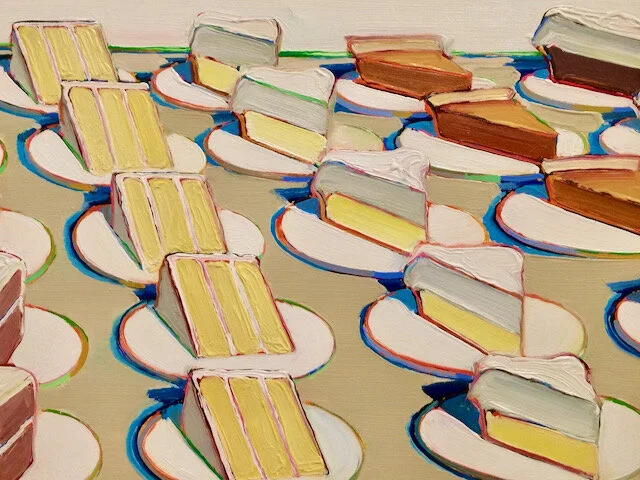Your Creativity is Your Passport
A few weeks ago, my son graduated with a Master of Science degree in Environmental Design. I know what you’re thinking: Not another proud father speech... I’m very proud of my son and his accomplishment, but this post is not about him. It’s about the speech the President of the school gave at beginning of the graduation ceremony.
The President used his time to talk to the graduating students about imposter syndrome. He reassured them we all feel like imposters from time to time and gave them advice on overcoming their feelings of inadequacy when they are on their own, without the support and affirmation the school community provides. The President’s talk was insightful and helpful, but it didn’t feel like an appropriate graduation day message.
A graduation is a confirmation ceremony—a recognition of achievement, a conferring of certification, and a formal validation. On graduation day, students can (at least for a day) convince themselves they are not imposters, they are graduates of a rigorous and internationally recognized academic program.
Everyone who earns a degree in the arts—creative or applied—is really graduating with a double major: one that honors their skills in their chosen area of creative expression and a second that recognizes their achievement in mastering a set of creative-thinking and problem-solving skills.
We are in unpredictable times. It’s never been a given that every graduate will find employment or be able to earn a living in the area in which they earned their degree, but today it seems less certain than ever... This is where their “second degree,” their degree in creative-thinking and problem-solving comes into play.
Many creatives judge their success by their ability to make a living “doing” their art. But whether you’re a professional or an enthusiastic amateur, your creative work is a study in creative problem solving. For example, artists are used to dealing with constraints such as time, budget, material choices, and the limitations imposed by their performance space.
David Bowie’s creative process embraced constraints. He frequently compressed the tracks in his recordings so he couldn’t remove effects he’d experimented with and liked. He didn’t believe in second guessing himself in the studio as he recreated the sound he heard in his head layer by layer.
It turns out that working with constraints is also a useful skill in business. Many founders of successful start-ups will tell you their success is largely the result of the constraints they had to work around in their early days, including their limited funding. Those constraints forced them to move quickly, decide, gather feedback, and push out a new version for the market to respond to. They then repeated the cycle as quickly as possible, inching their way forward toward a viable product.
Another important skill that artists learn is divergence and convergence—the art of capturing and elaborating on ideas, then transitioning to producing work based on those ideas. Divergence/convergence is both a creative skill and a project management skill. During the divergence phase, the focus is on creating choices; during the convergence phase, the focus is on making choices. Shipping work of any kind requires skilled management of the transition phase, the often-difficult time when ideas are jettisoned, options are closed off, and the scope of the outcome is narrowed to ensure the project ships. These kinds of decisions are familiar to creatives who often make excellent project managers because of their awareness of the emotional challenges that accompany the turn from creating choices to making choices.
Every graduation speech either begins or ends with a quote. I’m wrapping up with a quote on creativity from Steve Jobs:
Creativity is just connecting things. When you ask creative people how they did something, they feel a little guilty because they really didn’t do it, they just saw something.
A degree in the arts is a degree in learning how to see things, how to make connections. This is the essence of the most import skill of all: learning how to learn. We learn by making connections. Connecting what we know to what we’re trying to learn. In these times of continuous, dynamic change, there’s endless opportunity for those who have learned how to learn.
Whether you’re a recent graduate or a mid-career creative, your resume isn’t just your creative work, it’s also the creative problem-solving skills you’ve developed over the course of your studies and career. Those skills will open all kinds of doors for you, many in interesting and rewarding disciplines you never thought you’d consider. Your creative-thinking and problem-solving skills are your passport: Bon voyage!

